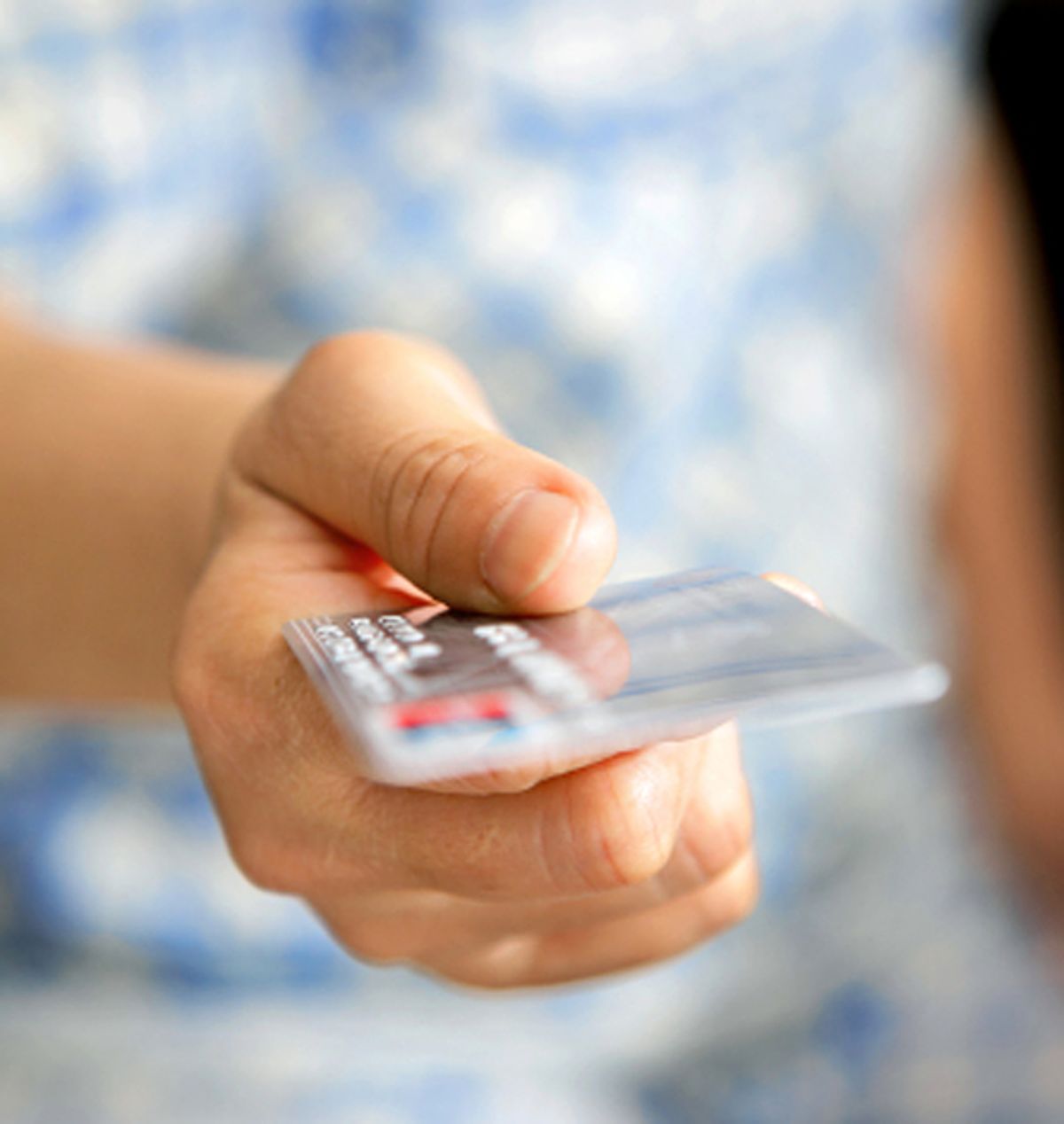No pain; weight gain! As the American love affair with credit and debit cards has burgeoned over the last few decades so have our waistlines! And guess what -- the correlation may not be a coincidence.
I confess, I originally followed a link from Credit Slips' Katie Porter to the forthcoming Journal of Consumer Reports paper "How Credit Card Payments Increase Unhealthy Food Purchases: Visceral Regulation of Vices" because it reminded me of the so-far totally false "starve-the-beast" theory, which pretends that cutting taxes will lead inevitably to smaller government. But I ended up falling in love with the paper on its own merits, aside from any possible relevance to tax cut shenanigans. After all, if there is one thing that I am a true expert on, it is the sad reality that "the depletability of cognitive resources" often leads to a failure to fend off our "visceral responses to vice products." Or, more colloquially, when we don't think things through, we tend to splurge on that extra order of fries.
In their paper, researchers Manoj Thomas (an assistant professor of marketing at Cornell), Kalpesh Kaushik Desai (an associate professor of marketing at State University of New York, Binghamton) and Satheeshkumar Seenivasan (a doctoral candidate at State University of New York, Buffalo) make a pretty authoritative case that grocery shoppers who pay with credit or debit cards tend to purchase larger quantities of unhealthy food. Basically, when you pay with cash, the theory goes, you tend to weigh your purchases more carefully. Credit and debit cards, on the other hand, seem to encourage impulsive behavior. Or, as the authors put it, "the abstract and emotionally inert nature of card payments ... reduce the pain of payment." Whereas, cash hurts , and "visceral responses such as feelings of pain can extinguish consumptive desires. With the extinction of desire, vice products no longer seem so appealing."
(I think the Buddha taught something along those lines, though I'm not sure he backed it up with peer-reviewed data. Read between the lines, and not only will you shed some pounds, but you could also avoid some disastrous relationships.)
The argument jibes very nicely with the explanation for why, historically, tax cuts that are not matched by spending cuts actually result in increased government spending -- for the citizenry as a whole, the pain of payment for products received has been eliminated. When we receive government services without paying their full cost, we consume more such services. If every spending initiative had to be matched by a tax hike or cut elsewhere in the budget, we would end up behaving much more frugally. But starving the beast just makes us more profligate.



Shares